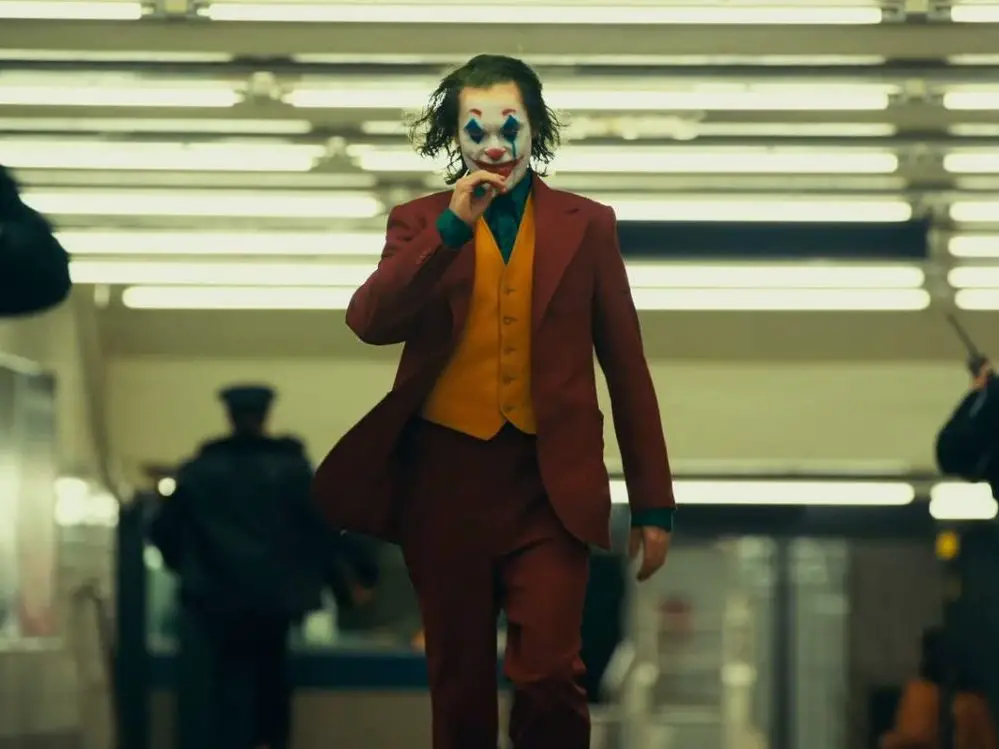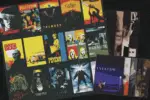From international award-winners such as “Parasite,” to riskier films like “Joker,” to thriller-comedies that include both “Ready or Not” and “Knives Out,” there seemed to be one running theme: class warfare.
This antagonism has existed in society for the longest time, sprouting from the clear separation between the rich and the poor. It was 2019, however, that brought this conflict closer to the surface in the film world, resulting in big box office numbers and plenty of well-earned accolades. The aforementioned movies may have very different structures and aesthetics, but they still reached their goal of acquiring a taste for the rich.
The citizens in the world of “Joker” are angry and frustrated from the beginning, with everyone going through personal struggles as they all attempt to fit into their role in class society. The main character of Arthur Fleck (turned Joker) exemplifies this as a mentally ill man that simply wants to make a good name for himself no matter how many times he needs to turn the other cheek — until he decides that enough is enough (or maybe in this case, not enough is not enough?).
The combinations of actor Joaquin Phoenix’s forcefully real portrayal of the iconic Clown Prince of Crime and director Todd Phillips’ ambitious vision turned what could have been yet another comic book adaptation into a film that brought forth a message of how ugly the world can be. When the class warfare places more of an emphasis on war while also touching on other controversial subjects such as gun violence, vigilante justice and mental health, it makes things less delightful — not to mention, having the starving poor transform themselves into a ravenous mob that feasts on the fattened-up rich.
The lesser-known but still well-received thriller-comedy “Ready or Not” tells the story of a young woman recently married into a wealthy and eccentric family. This absurdly hilarious and dark film embraces its ridiculousness with the way it is able to bring a pause to the horror-filled tension in order to have audiences laugh, if not also think about the way the wealthy “predators” discuss strategies for hunting down the lowly prey that is their new in-law.
In its own way, “Ready or Not” keeps its focus on the themes of family dysfunctions and its own spin on class warfare with a literal battle against the lower-class character, Grace, by her new family, who does not exactly have the best opinion of her in the first place. Directors Matt Bettinelli-Olpin and Tyler Gillett’s film is as blunt as some of the objects that are used as makeshift weapons in the film, with a clear message that rich people are the absolute worst.
Though on the surface it appeared as a run-of-the-mill murder mystery, “Knives Out” was actually anything but, due not only to its stellar cast that included Daniel Craig and Chris Evans, but also with what it had to say about upper class entitlement. The class warfare showcased here emerges between the wealthy Thrombey family and the almost always selfless and subtly courageous Marta Cabrera (played by actor Ana de Armas), a young caregiver who looked after the late Thrombey patriarch whose apparent murder is being investigated. For all of the comedic and mystery elements that were blended into this film, Rian Johnson’s “Knives Out” offered a more subtle commentary in comparison to Phillips’ “Joker” and Bettinelli-Olpin and Gillet’s “Ready or Not.”
With its inclusion of issues like immigration and the subtle repercussions of intergenerational wealth, the film can be seen as perhaps the most realistic take on what income inequality is actually like in America. The wealthier antagonists’ vicious antics may only come in small doses in each scene before bursting forth, but this only makes the film more realistic: It underscores the idea of the upper class as phony individuals that have become delusional and dependent on the system and are solely driven by entitlement and the expectation that they will come out on top.
Too much cannot be said about the next film since it is one of those that is best to watch blind (knowing little to nothing of the plot), but one must know that it still has much to say about class warfare, dropping bombshells around every corner and somehow becoming more unpredictable with every scene. Bong Joon-ho’s “Parasite” puts class society under a figurative microscope and lets everyone else study it all.
Not unlike the way Bong Joon-ho treated his 2014 film “Snowpiercer,” this concept included observations made about trickle-down economics (the idea of reduced taxes for the wealthy) by brilliantly placing scenarios set in the environment with the harsh fact that it will be the poor that will be the most affected while all the devastation occurs long before those at the top even realize that there is a world-ending situation going on.
No matter how straightforward or subtle the story was, each movie still had plenty to say about the dangers of income inequality as well as the way capitalism carries the ability to trap anyone. Wealth disparity and class warfare is the message that is being delivered, along with how societal differences can create real monsters: whether it be the sadistic ones that are well off and too greedy to share their wealth, or the starved, frightened ones with nothing left to lose.
















